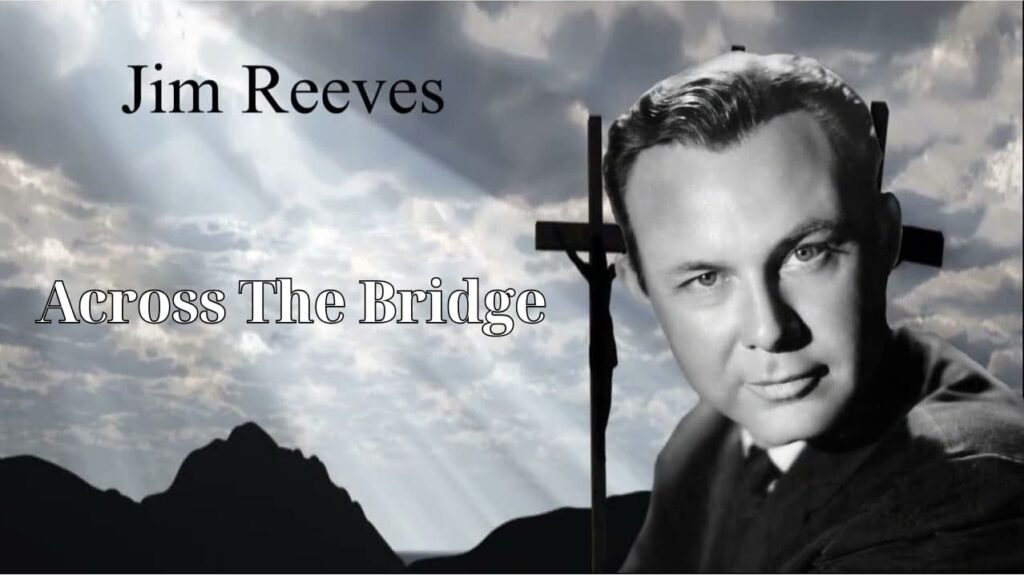
A timeless ballad of faith, hope, and the ultimate journey to a peaceful, spiritual home.
For a certain generation, the name Jim Reeves doesn’t just represent a country music star; it evokes a feeling, a memory of a simpler time, a voice as smooth and comforting as velvet. His music was the soundtrack to a thousand Sunday mornings, quiet evenings, and long car rides. While his biggest commercial smash may have been the classic “He’ll Have to Go,” there is arguably no song that better captures the essence of “Gentleman Jim” and his profound, calming influence than the gospel hymn, “Across the Bridge.” Released in 1962, this spiritual masterpiece was penned by the songwriter Walter Scott and became a key track on Reeves’ popular gospel album, We Thank Thee. Though not a major pop chart crossover, its impact on the country and inspirational charts was immense, resonating deeply with an audience looking for solace and hope. Its success was more than just numbers; it was a cultural touchstone, a gentle whisper that spoke directly to the soul of a nation.
The story behind “Across the Bridge” is as straightforward and sincere as the song itself. It wasn’t born of a dramatic heartbreak or a rebellious moment, but from a place of deep, spiritual yearning. The song’s lyrics describe a life of sin and struggle, a journey where a weary traveler asks for a path to real happiness. The answer comes not from a worldly place, but from a profound faith: the path leads “across the bridge” to a place of eternal peace. The “bridge” is a powerful and tender metaphor for the transition from a troubled earthly existence to the serenity of the afterlife. It’s a message of redemption and salvation, delivered not with fire and brimstone, but with the gentle assurance of a friend. Jim Reeves’ rich, light baritone was the perfect vessel for this message. His voice, unburdened by the raw, rough edges of many of his country contemporaries, gave the song an almost ethereal quality. It was a voice that didn’t just sing the words; it embodied their meaning, making the promise of peace and a better place feel tangibly real.
Listening to “Across the Bridge” today is a walk down memory lane for those who came of age in the mid-20th century. It takes you back to a time when faith was a central pillar of community life, and a gospel song on the radio could quiet a whole room. It’s the kind of song you heard echoing from church halls, played softly on a console radio, or hummed while working in the garden. Its enduring legacy lies in its ability to offer comfort without condition. For the listener wrestling with life’s sorrows and pains, Reeves provided a musical sanctuary. The song’s simple yet profound chorus—”Across the bridge there’s no more sorrow, across the bridge there’s no more pain”—is a lullaby for the burdened, a gentle reminder that beyond life’s tribulations lies a promise of eternal peace. It’s a message that transcends time and genre, which is precisely why, decades after its release and the tragic passing of its singer, “Across the Bridge” remains a beacon of hope and a cherished hymn for so many. It is the sound of a golden voice guiding us home, long after the last note has faded.